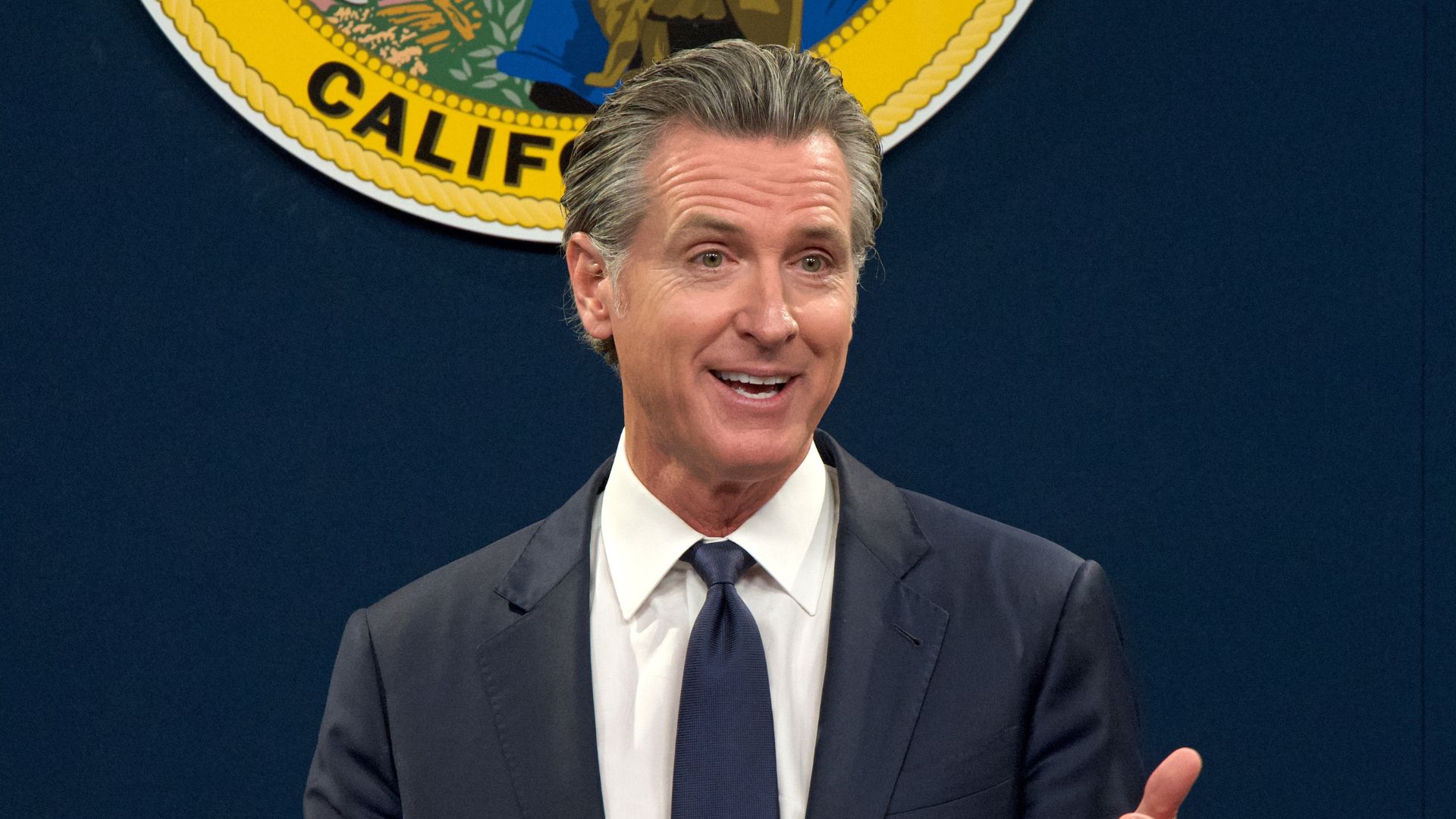California has become the first state in the nation to pass a law phasing out ultra-processed foods from school meals, following the signing of new legislation by Gov. Gavin Newsom on Wednesday, as reported by The New York Post.
Under the law, the California Department of Public Health must define “ultra-processed foods of concern” and “restricted school foods” by mid-2028. Schools will begin phasing out those foods by July 2029, with full restrictions in place by July 2035.
Vendors supplying “foods of concern” to schools will be prohibited from doing so by 2032.
Newsom signed the bill at a middle school in Los Angeles, joined by first partner Jennifer Siebel Newsom and state lawmakers.
MAHA gets bipartisan
Newsom signs ban on ‘ultraprocessed’ food in California school luncheshttps://t.co/ImBk9L7q6g
— Sean Spicer (@seanspicer) October 8, 2025
This Could Be the Most Important Video Gun Owners Watch All Year
“California has never waited for Washington or anyone else to lead on kids’ health — we’ve been out front for years, removing harmful additives and improving school nutrition,” Newsom said.
“This first-in-the-nation law builds on that work to make sure every California student has access to healthy, delicious meals that help them thrive.”
Earlier this year, Newsom issued an executive order directing the Department of Public Health to develop recommendations for reducing harms from ultra-processed foods.
He also signed a 2023 law banning certain synthetic food dyes from school meals. Legislatures in other states have introduced more than 100 similar bills aimed at banning or labeling ingredients found in processed foods, including artificial dyes and chemical additives.
Ultra-processed foods make up more than half of Americans’ daily calories and have been linked to health issues such as obesity, diabetes, and heart disease, though studies have not established direct causation.
Defining which foods qualify has proven difficult, with most experts relying on the Nova classification system developed in Brazil. That framework categorizes foods based on how much processing they undergo.
Some items, such as tofu or whole-grain breads, are considered processed but still nutritious. Researchers remain divided over whether negative health effects stem from the processing itself or from high levels of sugar, fat, and salt.
Critics argue that California’s new law could be too sweeping. John Hewitt of the Consumer Brands Association said food and beverage companies already meet “rigorous unique safety and nutrition standards” established by the USDA and state agencies.
He added that the brands his group represents are committed to offering “safe, nutritious, and convenient” products.
The California School Boards Association has also raised concerns about the law’s financial impact. “You’re borrowing money from other areas of need to pay for this new mandate,” spokesperson Troy Flint said, noting that the legislation provides no additional funding.
A Senate Appropriations Committee analysis found the law could raise costs for districts forced to buy higher-priced alternatives.
Some districts have already begun making changes voluntarily. In Morgan Hill Unified School District, Director of Student Nutrition Michael Jochner said the district now sources all meals from local farms and has eliminated sugary cereals, flavored milks, and deep-fried foods.
“It was really during COVID that I started to think about where we were purchasing our produce from and going to those farmers who were also struggling,” he said.
In the Western Placer Unified School District northeast of Sacramento, Food Services Director Christina Lawson has increased scratch-made meals from about 5% of menus three years ago to 60% today.
“I’m really excited about this new law because it will just make it where there’s even more options and even more variety and even better products that we can offer our students,” Lawson said.
Dr. Ravinder Khaira, a Sacramento pediatrician who testified in favor of the bill, said the measure could help address rising rates of childhood obesity and other chronic diseases.
“Children deserve real access to food that is nutritious and supports their physical, emotional and cognitive development,” Khaira said. “Schools should be safe havens, not a source of chronic disease.”
The opinions expressed by contributors and/or content partners are their own and do not necessarily reflect the views of LifeZette. Contact us for guidelines on submitting your own commentary.
Read the full article here







![Charlotte Area Schools Report Over 30,000 Absences Following Weekend of ICE Arrests [WATCH] Charlotte Area Schools Report Over 30,000 Absences Following Weekend of ICE Arrests [WATCH]](https://www.lifezette.com/wp-content/uploads/2025/11/2025.11.23-06.59-lifezette-6922b0c6b56bf.jpg)

![FBI Busts Texas Scheme to Invade Haitian Island and Build Sex-Slave Colony [WATCH] FBI Busts Texas Scheme to Invade Haitian Island and Build Sex-Slave Colony [WATCH]](https://www.lifezette.com/wp-content/uploads/2025/11/2025.11.22-07.47-lifezette-69221358bde76.jpg)

![Ex-CIA Officer Says Dem Sen. Slotkin Ran ‘Propaganda Op’ Aimed at FBI and Military [WATCH] Ex-CIA Officer Says Dem Sen. Slotkin Ran ‘Propaganda Op’ Aimed at FBI and Military [WATCH]](https://www.rvmnews.com/wp-content/uploads/2025/03/2025.03.19-07.18-rvmnews-67db187de1e41.jpg)
